How do you go about crowdfunding for someone you have never met?
- Published
Shane Yerrell: The crowdfunding superhero who raises money for strangers
The meteoric rise of crowdfunding has revolutionised how easy it is to help out those in need. Often fundraising is done by friends or family, but an increasing number of people are setting up pages for complete strangers whose stories tug at their heartstrings. So how do you go about changing the life of someone you've never met?
Shane Yerrell is a man on a mission. The victim of a knife attack a decade ago, he decided to turn his hand to helping others, and has raised more than £20,000 for a number of causes since 2011.
He has climbed a mountain, shaved his head, walked from London to Brighton - and he has set up crowdfunding pages for people who he does not know, and might never meet.
"If I won the lottery, I'd be the first millionaire to become skint," said Mr Yerrell, 33, from Waltham Abbey, Essex, who works with adults who have learning disabilities.
"When I read stories in the news, I get a bit more affected by them than most people do. I get really annoyed to the point where I want to make a stand and help them there and then.
"You don't have to know someone to want to help them."
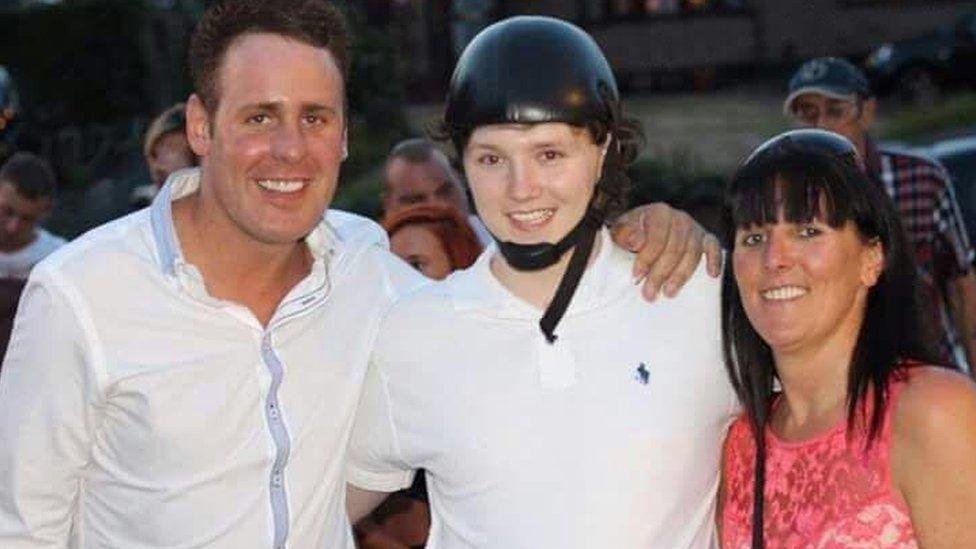
Shane Yerrell decided to help Liam Bradshaw after hearing about the car crash he was involved in
One of the people Mr Yerrell has crowdfunded for is 21-year-old Liam Bradshaw, from Enfield, who was involved in a catastrophic car crash in which his three friends died in 2012.
"I was left with 17 fractures to the face, broken collarbones, a nose job and a titanium forehead. I was in hospital for eight and a half months," Mr Bradshaw recalls.
When Mr Yerrell heard in the news about what had happened, he approached Mr Bradshaw's family and asked if he could help to raise money for his recovery, through a fundraising page and by climbing Mount Toubkal in Morocco.
"Shane came along towards the end of my hospital life. The guy has the kindest heart - he went out of his way to help a stranger so that stranger could live his life again," Mr Bradshaw said.
"I'm so glad it happened, because if I hadn't had the accident, I wouldn't have met someone with such a good heart," he added.
"From what Shane did for me, I've then come out of hospital to go and coach disabled children for Tottenham Hotspur.
"We've gone beyond friends now - he's more like family."
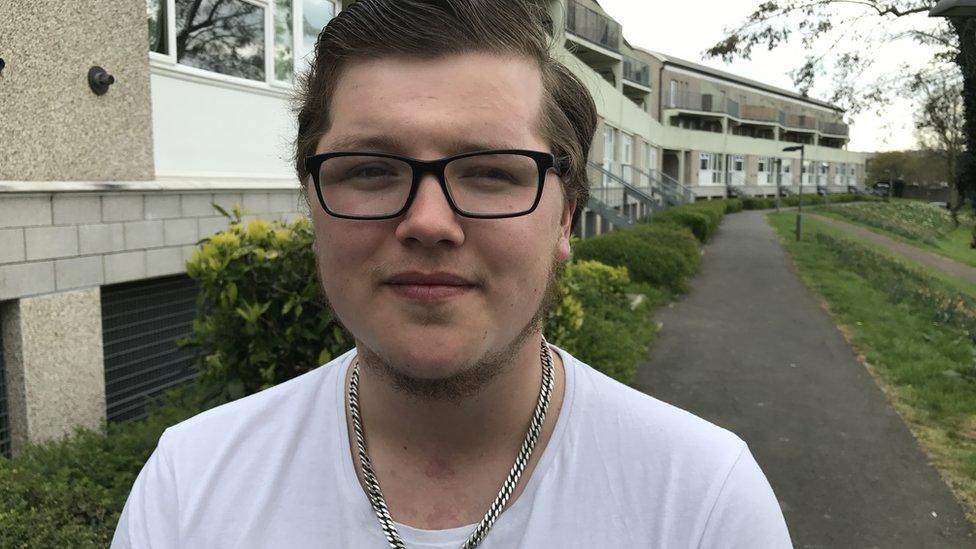
Liam Bradshaw said he had been inspired by the actions of a stranger - Shane Yerrell - who had raised money for him after his accident

Giving back
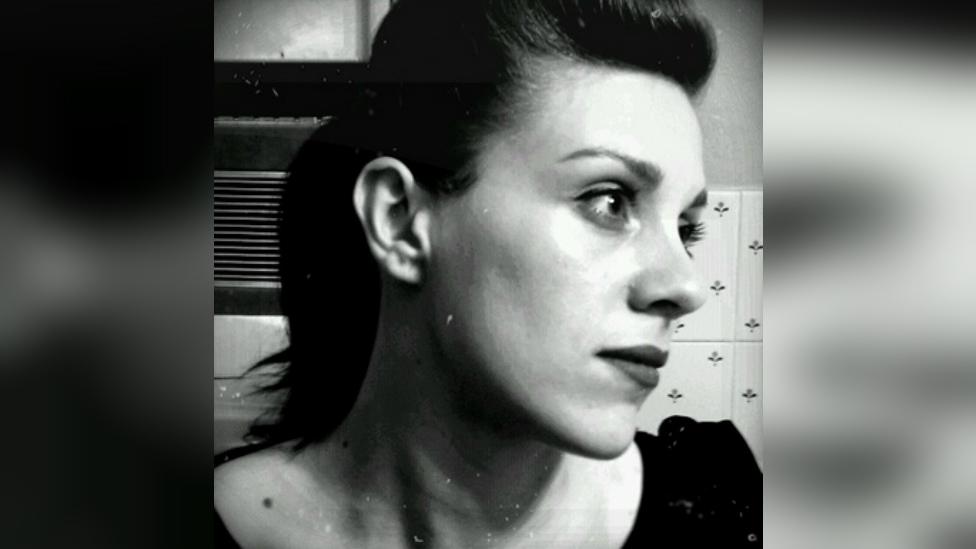
Bridey Watson set up a crowdfunding page to help a complete stranger after money was raised to help her through her illness
Bridey Watson, 35, from Bristol, was on the receiving end of crowdfunding a few years ago, after contracting babesiosis, a malaria-like parasitic disease developed from a tick bite.
"I was bed and wheelchair-bound, having seizures every day," she recalls.
"When the doctors finally worked out what was wrong, my friends and family set up a crowdfunding page for me to go to Germany and the US for treatment, where tick-borne diseases are better understood and treated.
"The crowdfunding other people did for me enabled me to regain my health and rebuild my life."
Ms Watson is still recovering from the effects of babesiosis, but was inspired to help someone else in need following her own experience.
She said she was horrified by an assault on 17-year-old asylum seeker Kurdish-Iranian Reker Ahmed, who was chased and subjected to a "brutal attack" in Croydon at the end of March.
"He's finally thinking he's reached a place of sanctuary, only to be attacked - I could picture the terribleness of what he'd been through," she said.
"From my own experience, I knew the messages people left were as important as the physical health money can bring. And that's what I wanted to do for the guy who was attacked."
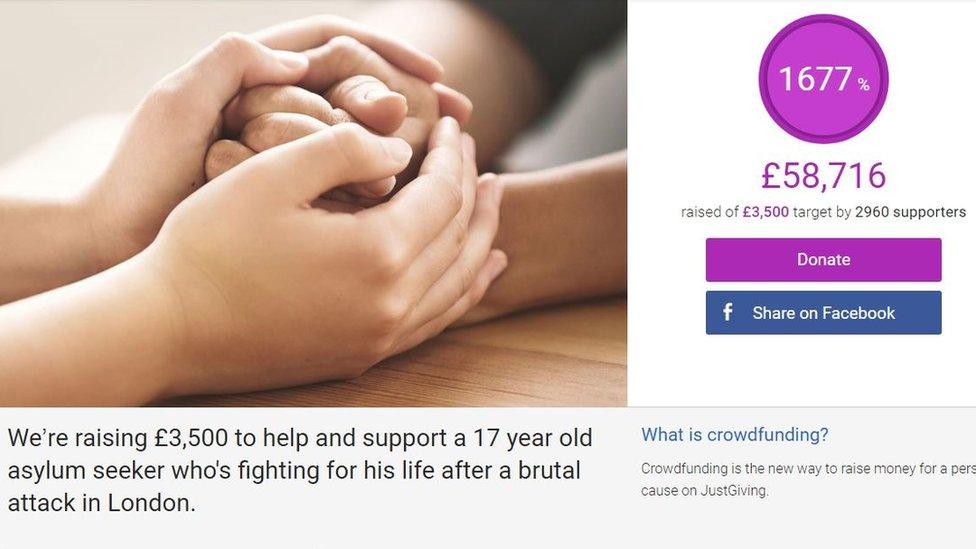
Ms Waton's page to help an attacked asylum seeker smashed its target

The psychology behind setting up a crowdfunding page for a stranger can be split into three categories, says philanthropic psychologist Jen Shang.
"Typically, people help strangers to make themselves feel good, to make others feel good, or both," she said.
"Some people don't want to get up close and personal with the people they help - they want to keep it all at arm's length and have a simple, easy and warm way of helping.
"Others prefer to have direct contact with the people they're helping, and crowdfunding sites offer a channel where that sort of connection is possible."
Ms Shang, who works as research director at the University of Plymouth's Centre for Sustainable Philanthropy, said although the percentage of people donating money to charity or other causes "has not changed in the UK or the US for decades," new methods of giving were constantly being invented, with crowdfunding "the new kid on the block".
"For people like Mr Yerrell, crowdfunding might be the most 'sustainable' way of giving - the way that sustains the knowledge and feeling you're caring about others.
"Psychologists say as long as you're a human, you want to care about others."

Top tips for crowdfunding for strangers
JustGiving, the UK's first online fundraising platform, says more than 191,000 pages are created each year
GoFundMe, another of the largest crowdfunding sites, was created in 2010 and has so far raised more than $3bn (£2.34bn) worldwide.
If you want to set up a crowdfunding page for someone you have never met, the most important piece of advice is to ask the person in question if they approve of what you want to do.
JustGiving and GoFundMe say refunds will be made if the person involved does not want to accept the donations.
"These cases are very rare but if they happen, we would work with the campaign organiser and the intended beneficiary to come to a solution - for example donating the money to a charity or refunding donors," said John Coventry, head of UK communications at GoFundMe. "Ultimately, people are kind. They see something in the news that moves them and they want to help - that's why GoFundMe exists: as a tool that helps people to help others.
Explain how the funds will reach the recipient, says the director of PR for JustGiving, Rhys Goode. "If this changes in any way, we would advise page owners to update their page accordingly."

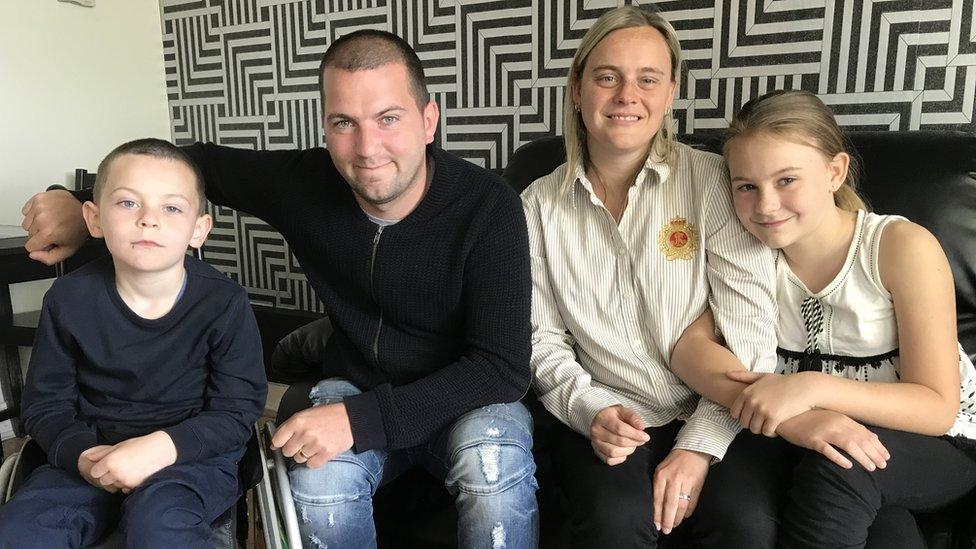
The Parker family - Harry, Glen, Danielle and Mia - have experienced the kindness of strangers
For the Parker family, who live in Cheshunt, Hertfordshire, a stranger's help could not have come at a better time.
They were trying to raise £75,000 for specialised surgery to help seven-year-old Harry, who has cerebral palsy, to be able to walk.
Mr Yerrell was introduced to them by a friend, but had not met the family before that, and ended up helping to hit the fundraising target.
"It's unbelievable - the amount of people he's helped. We weren't the first and I know we won't be the last," Harry's dad Glen said.
"As soon as I met him, I knew he was genuine. It's a life changer for Harry and us as a family. People like him don't come along every day."
Harry's mum Danielle said Mr Yerrell - whose work has been recognised with a British Citizen Award and a Pride of Essex Award - had become "a big part" of the family's life.
"Not only has he helped us, he's a genuinely nice person. Sometimes you need someone like him in your life to make you think everything will be alright, especially when you're going through a tough time."


Mr Yerrell has founded a community interest company, Through the Fight, with the aim of gaining charity status in the coming year.
He will also be taking some time for himself, he said, because "you don't want to make people sick of it".
"I want to have time to do NVQ at work," he said. "But if something was to happen to someone I knew, I'd be there first person to try to help.
"I put everything into my fundraising. It's not just setting up the pages - you have to contact the person of their family, put your own money into it, promote it.
"I'm not well off, but that money could go down the pub or on silly things. I will always want to help and make a difference, but you need a bit of reality too."